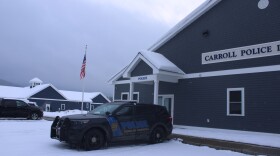New Hampshire public schools have not been used to house migrants. Should that change, schools that did would lose public funding under Republican-backed legislation.
Rep. Juliet Harvey-Bolia, House Bill 71’s prime sponsor, said her intent is to prevent the closure of schools to house any immigrants, including refugees and others here legally.
“The bill does not seek to ban the use of schools for immigrant housing so much as if you receive state money, then your agreement is you will use schools as schools,” said Harvey-Bolia, of Tilton. “We want to keep the schools for schools.”
The legislation could have repercussions for people in the country legally, including refugees, according to the Department of Health and Human Services. The agency added a note to the bill warning it may conflict with the federal refugee resettlement program and cost the state as much as $18 million a year to assist those new arrivals.
The department did not return a message seeking more detail. Harvey-Bolia said she was unaware of the agency’s concern.
But her bill would make an exception for temporary stays in weather emergencies. Harvey-Bolia pointed to New York City’s decision to use a school in January to temporarily house migrants who were in the country legally. A storm led the city to use the school for 12 hours. Classes were not canceled but held remotely for a day to accommodate the migrants.
The legislation is one of several immigration-related bills lawmakers have filed for the 2025 session. Others would invalidate out-of-state driver licenses issued to undocumented immigrants and require local law enforcement to more fully cooperate with federal immigration agents.
That kind of focus - locally and nationally - on undocumented migrants worries an organization that helps New Hampshire resettle 90 to 170 refugees in the state annually. Refugees are admitted after a vetting process that can take two years and includes health and criminal background checks. Most live in Manchester and Nashua, according to DHHS’s tracker.
“Anytime that we have a strong anti-immigrant narrative in the country, it affects all immigrants in the country,” said Bill Gillett, the director of public policy and advocacy for the International Institute of New England “I think all immigrants (get concerned) because they don't know if they're going to get caught up in an ICE raid and be improperly detained for any amount of time.”
Gillett’s worries extend to other individuals who’ve arrived in the United States via a government program. That includes people who’ve requested asylum and people here temporarily as “parolees” because their own countries have become so dangerous. The status does not mean they were formerly incarcerated. Federal funding for some of those programs has ended or is scheduled to end in the coming two years.
Gillett also questioned the need for a bill banning immigrants from using public schools, including universities, as shelters in New Hampshire.
“This bill seems to be directed at something that hasn't been an issue and is unlikely to become an issue,” he said.
During the last legislative session, Gillett said he spent a fair amount of time talking with lawmakers, explaining the country’s complex immigration programs. He expects that work will continue this year.
“We want to make sure that they understand the impact of proposed legislation and that there are certain immigrants that are targeted and certain immigrants that have tended to fall into some of these (anti-immigration bills) unintentionally or intentionally,” he said.
“There's certainly a focus on undocumented immigrants in the state, rightly or wrongly, and there's different views on that,” Gillett said. “But extending (legislation) to refugees, asylees, and parolees does not make any logical sense, given that they are lawfully admitted into the country and can obtain or can or come with work authorization.”







